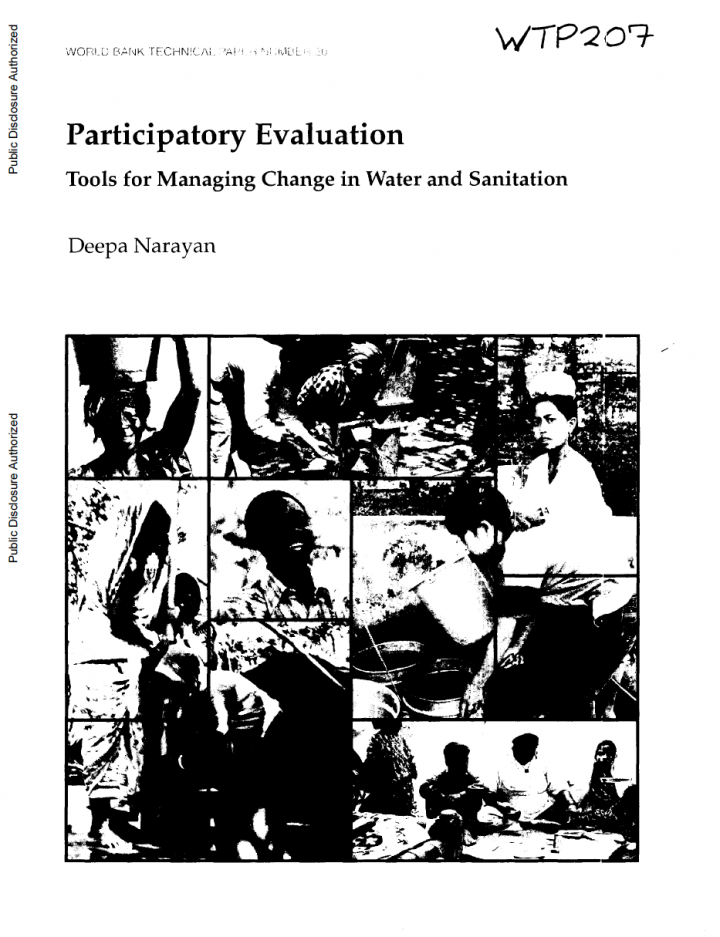Participatory Evaluation. Tools for Managing Change in Water and Sanitation. World Bank Technical Paper No. 207.
Narayan D. (1993)

Published in: 1993
Pages: 140
Author:
Narayan D.
Uploaded by:
SuSanA Admin
Partner profile:
common upload
1027 Views
12 Downloads
There is now widespread recognition that participatory development-involvinig users and communities in all stages of the development process-is critical for achieving sustained benefits. By responding to felt needs, and by involving stakeholders intimately in all aspects of a program, participatory development creates "ownership," accountability, and a willingness on the part of users to manage and invest in services. By broadening and opening up the development process, participatory development requires new approaches to planning and poses new challenges. At the policy level, participatory development requires major institutional reorientation on the part of governments to ensure responsiveness to local demand and to empower communities to act. At the program level, detailed blueprints cannot be drawn up at the outset since deci- sions are made jointly with communities. Problem-solving is based on partnership, not the quest for the one right answer. Since the process gives people and communities more choice, it is more open-ended. Participatory management requires a more fluid and evolving planning process. One of thie greatest challenges is to build into this process a mechanism that allows for learning, correction, and adjustment. To do this requires a clear set of objectives and indicators of success which promote accountability and participation, and which can be monitored and evaluated. The key questions managers must face are what should be monitored and evaluated and what processes should be utilized. This document provides policymakers, managers, and planning and evaluation staff with ideas about participatory processes and indicators that can be used to involve community members and others in program evaluation. Drawing upon experience gained during the past fifteen years in more than twenty countries, the volume is structured around a framework of key indicators that can be measured to determine progress toward the objectives of sustainability, effective use, and replicability in water and sanitation programs. The methodology is relevant to other sectors, as well.
Bibliographic information
Narayan D. (1993). Participatory Evaluation. Tools for Managing Change in Water and Sanitation. World Bank Technical Paper No. 207..
Filter tags
English















